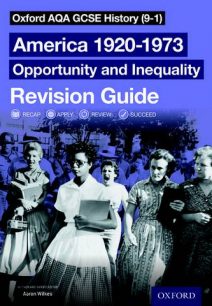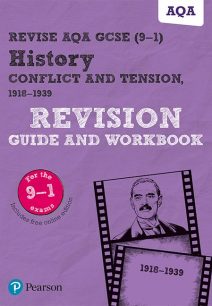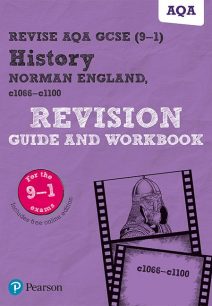Attributes of a Most Able Learner in History
A Most Able learner in History is one who has a keen passion for the subject, which is reflected in their writing and communication skills. They possess strong critical thinking skills and have the ability to analyse and interpret historical events, as well as being proficient in making connections between past and present events They are able to confidently evaluate different perspectives, motivations and causes.
Overall, Most Able learners in History possess a curiosity and passion for learning and understanding different cultures, events and historical processes. They enjoy reading about history beyond the classroom curriculum, exploring various time periods, regions and topics.
Learning Outside of the Classroom
We strongly recommend extra reading around historical events either generally or linked specifically to topics we are teaching during lessons. In addition to this learners can engage with historical media such as movies, documentaries and podcasts. Examples include Schindler’s List, The Crown, Band of Brothers and Hidden Figures. There are numerous documentaries streaming on platforms like Netflix and Youtube such as The History of the World in 100 Objects.
Finally, History Podcasts are also an accessible way to absorb knowledge, such as Hardcore History by Dan Carlin. Visiting local historical landmarks, museums or even virtual tours such as those offered by the British Museum or Louvre, provide excellent enrichment opportunities.
Recommended Reading List
| Year 7: | |
| Author: | Title: |
| Markus Zusak | ‘The Book Thief’ |
| Michael Morpurgo | ‘War Horse’ |
| Michael Morpurgo | ‘Private Peaceful’ |
| Jim Eldridge | ‘Roman Invasion (My Story)’ |
| Annelise Gray | ‘Circus Maximus:Race to the Death’ |
| Sir Michael Morpurgo | ‘Beowulf’ |
| Stuart Hill | ‘Shield Maiden’ |
| Henry Treece | ‘The Viking Saga’ |
| Berlie Dohorty | ‘Treason’ |
| Lucy Worsley | ‘Eliza Rose’ |
| Berlie Dohorty | ‘Children of Winter’ |
| Year 8: | |
| Author: | Title: |
| Sharon M. Draper | ‘Stella by Starlight’ |
| Fracesco D’Adamo | ‘Oh freedom!’ |
| Harper Lee | ‘To Kill a Mockingbird’ |
| Year 9: | |
| Author: | Title: |
| Catherine Johnson | ‘Freedom’ |
| Michael Morpurgo | ‘War Horse’ |
| Michael Morpurgo | ‘Private Peaceful’ |
| Jim Eldridge | ‘Roman Invasion (My Story)’ |
| George Orwell | ‘Animal Farm’ |
| Marcus Zusak | ‘The Book Thief’ |
| Anne Frank | ‘The Diary of Anne Frank’ |
| Candace Fleming | ‘The Family Romanov: Murder, Rebellion, and the Fall of Imperial Russia’ |
| Key Stage 4: | |
| Author: | Title: |
| Kate Pankhurst | ‘Fantastically Great Women Who Made History’ |
| Niall Ferguson | ‘Empire How Britain made’ |
| Marc Morris | ‘The Anglo-Saxons’ |
| Marc Morris | ‘The Norman Conquest’ |
| John O’Mara | ‘The Civil Rights Movement’ |
| David Olusoga | ‘Black and British’ |
AQA Revision Guides for Key Stage 4
 |
 |
 |
 |
- Paper 1 – Oxford AQA GCSE History (9-1) Conflict and Tension 1918-1939
- Paper 1 – Oxford AQA GCSE History (9-1): America 1920-1973: Opportunity and Inequality
- Paper 2 – Oxford AQA GCSE History (9-1) Norman England C1066-1100
- Paper 2 – Oxford AQA GCSE History (9-1) Britain, Migration, Empires and the People c790-Present Day.
How We Support Most Able Learners in Lessons
| Disciplinary Skill/Knowledge | Tailored Support |
| Historical significance |
|
| Evidence and Sources |
|
| Interpretations of the Past |
|
| Cause and Consequence |
|
| Change and Continuity |
|
| Similarity and Difference |
|
| Knowledge and understanding |
|
What Can Parents/Carers Do To Support?
By supporting your child’s passion for History you can help them develop not only a deeper understanding of the past, but also critical skills they can use throughout their education and beyond. Encourage your child to further engage with Historical literature through reading some of the selected books in the reading list or join the Historical Association, Historic Uk or the Children’s History Society. Introduce your child to a wide range of historical materials like books, documentaries, podcasts, and movies that bring History to life in different ways. Take them to local museums, historical sites, or even historical reenactments. Hands-on experiences can deepen their understanding and excitement.
Useful Websites
https://www.bbc.co.uk/bitesize/subjects/zk26n39
(KS3)
https://www.bbc.co.uk/bitesize/subjects/zj26n39
(KS4)
https://www.senecalearning.com
(Revision tool)
https://www.history.org.uk/student/categories/history-resources-for-students
(Historical Association)
https://www.historic-uk.com/HistoryUK
(articles updated monthly)

